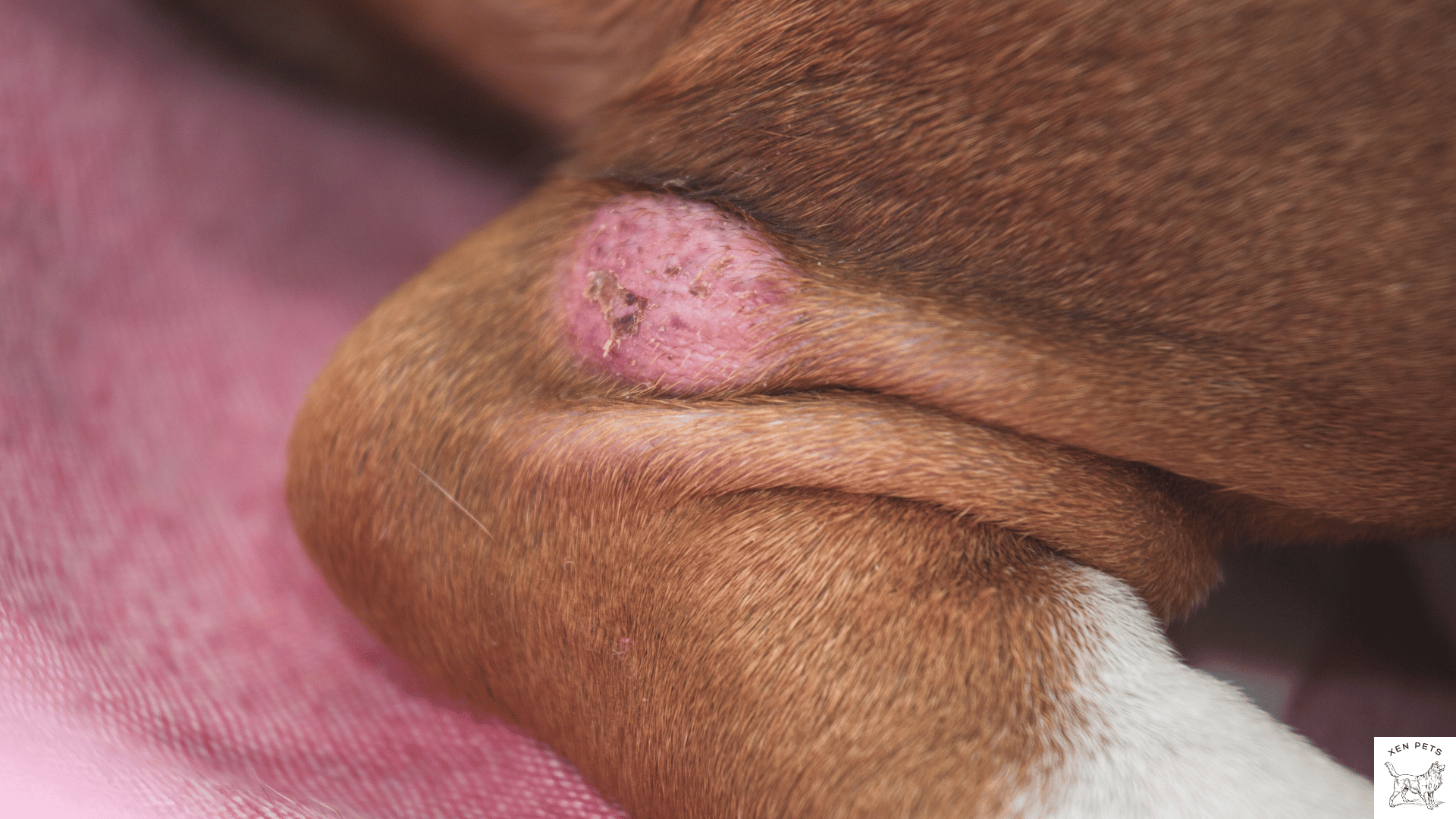Why is my dog's head hot?
Tory JohnsonShare
As dog owners, we want to take the best care of our dogs. One way to do that is understanding why their body temperature may be hotter than usual. Have you ever touched your dog’s head and noticed that it was warmer than usual?
In this blog post we'll take a look at what's causing your dog's head to be hot and what you can do about it.
5 Reasons your dog's head feels hot to the touch
It’s normal for a dog's head to feel warm when you touch them, but if the warmth seems excessive, there could be underlying issues including fevers, stress, vaccinations, allergies, and inflammation.
Let's take a look.
1. Your dog has a fever

As a dog owner, it's essential to be aware of the signs that your dog might be running a fever.
Many things can cause a dog to get a fever, from infections and illnesses to environmental factors such as extremely hot weather.
So, how can you tell if your dog has a fever? Your dog's nose and head will be hot. Lethargy, loss of appetite, and shivering can also occur.
With a rectal thermometer, your dog's normal body temperature should read around 100.2-103.8°F.
If you suspect your dog has a fever, it's important to contact your vet right away to ensure they get the proper care and treatment they need.
2. Is your dog stressed?
Have you ever noticed your dog getting hot when they're stressed?
It's not just your imagination, dogs can actually experience an increase in body temperature when they're anxious or scared.
This is because stress triggers the body's "fight or flight" response, which causes the release of cortisol and adrenaline. These hormones can raise a dog's heart rate, blood pressure, and body temperature.
So, the next time you notice your dog's hot head, know that it's not just the summer heat, it could be a critical sign of stress.
Calming Chews are a great option during stressful times. These chews relieve stress & anxiety throughout the day and at bedtime.
Our premium chews are made with essential B vitamins and minerals like magnesium. Not only are they great at relieving stress, but they're essential to your dog's development.
Shop today and get free shipping - Calming Chews for Dogs.
3. Canine vaccinations

Have you ever noticed your dog feeling a bit warmer than usual after getting a vaccine? It's not unusual for dogs to experience a mild increase in body temperature after receiving a vaccination.
This is actually a common side effect, as the body's immune system is working to create protective antibodies.
While a slight increase in temperature is usually nothing to worry about, it's always a good idea to keep a close eye on your dog and monitor their behavior.
If you notice any significant changes in behavior, don't hesitate to reach out to your veterinarian.
4. Dog allergies

It's hard to watch our dogs suffer from allergies. But did you know it can also increase your dog's body temperature?
It's not surprising that an allergic reaction can cause a physical response in canines. A fever can be an added symptom that we might overlook.
Always keep a close eye on your pets, especially during allergy season, and be aware of any changes in their behavior or health.
Taking preventative measures and seeking help from a vet can go a long way in keeping our pups healthy and happy.
5. Your dog may have inflammation

Inflammation is a natural response to injury or infection, and it can cause the affected area to become warm, red, and swollen.
When your dog experiences inflammation, their body temperature can increase, creating a hot head.
This isn't necessarily a bad thing - it means that your pup's immune system is kicking into gear to fight off whatever is causing the inflammation.
However, it is important to keep an eye on their temperature and take steps to reduce it if necessary.
Conclusion: Should my dogs head feel hot?
It’s important to stay aware of your dog’s temperature, especially if it rapidly changes.
If your dog's head is hot, taking action quickly can mean the difference between a small issue and a more serious situation. Your dog's natural cooling mechanism might not be enough.
Knowing the potential causes of a higher-than-normal body temperature helps pet owners recognize when their dog might be in trouble.
If your canine companion seems off, call your vet and see what they suggest, they could be suffering from a heat stroke.
To make sure you get all the latest tips and tricks for caring for your pet, subscribe to our newsletter! We cover all kinds of topics that will come in handy the next time you have questions about what your pup needs.











